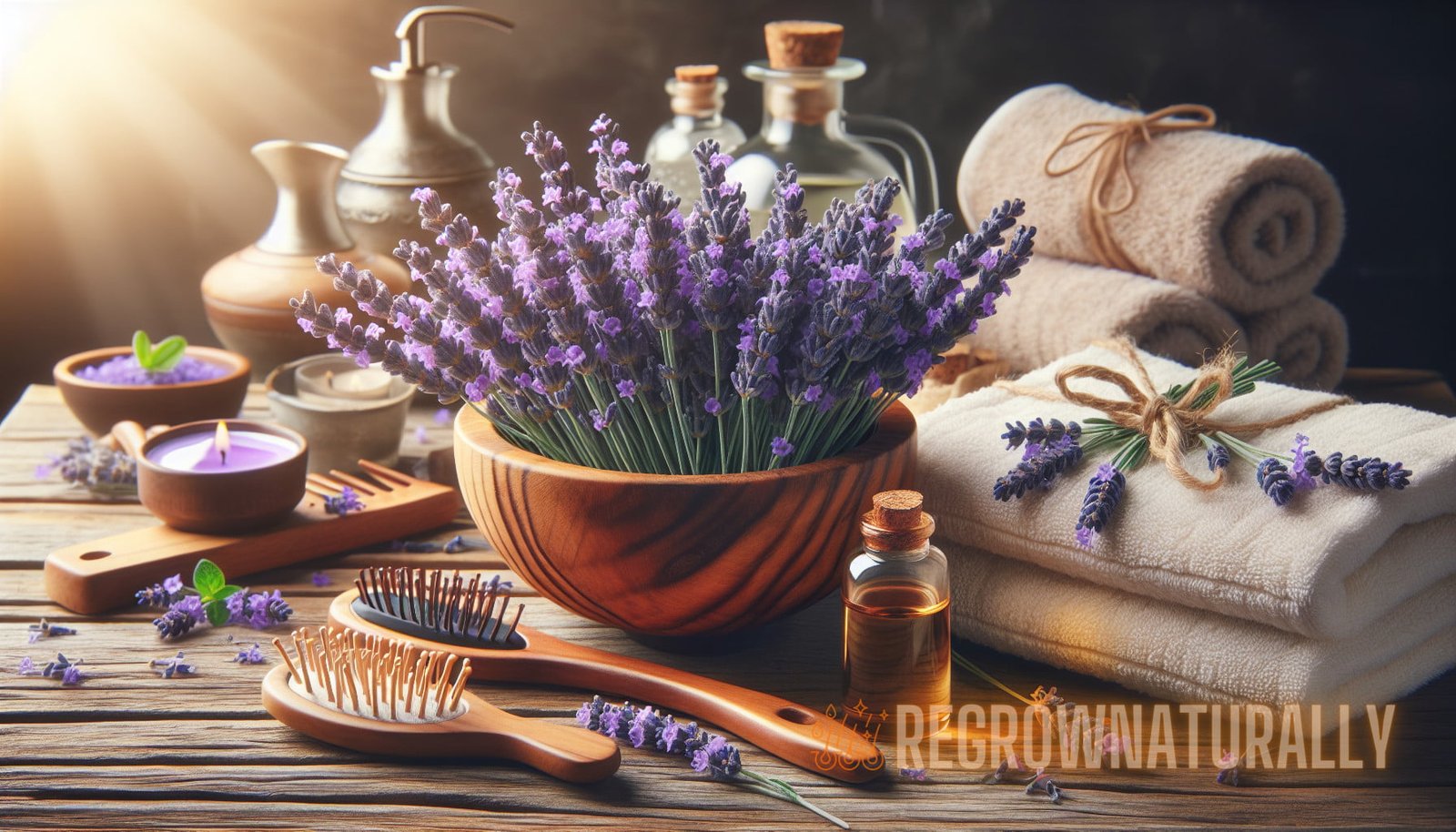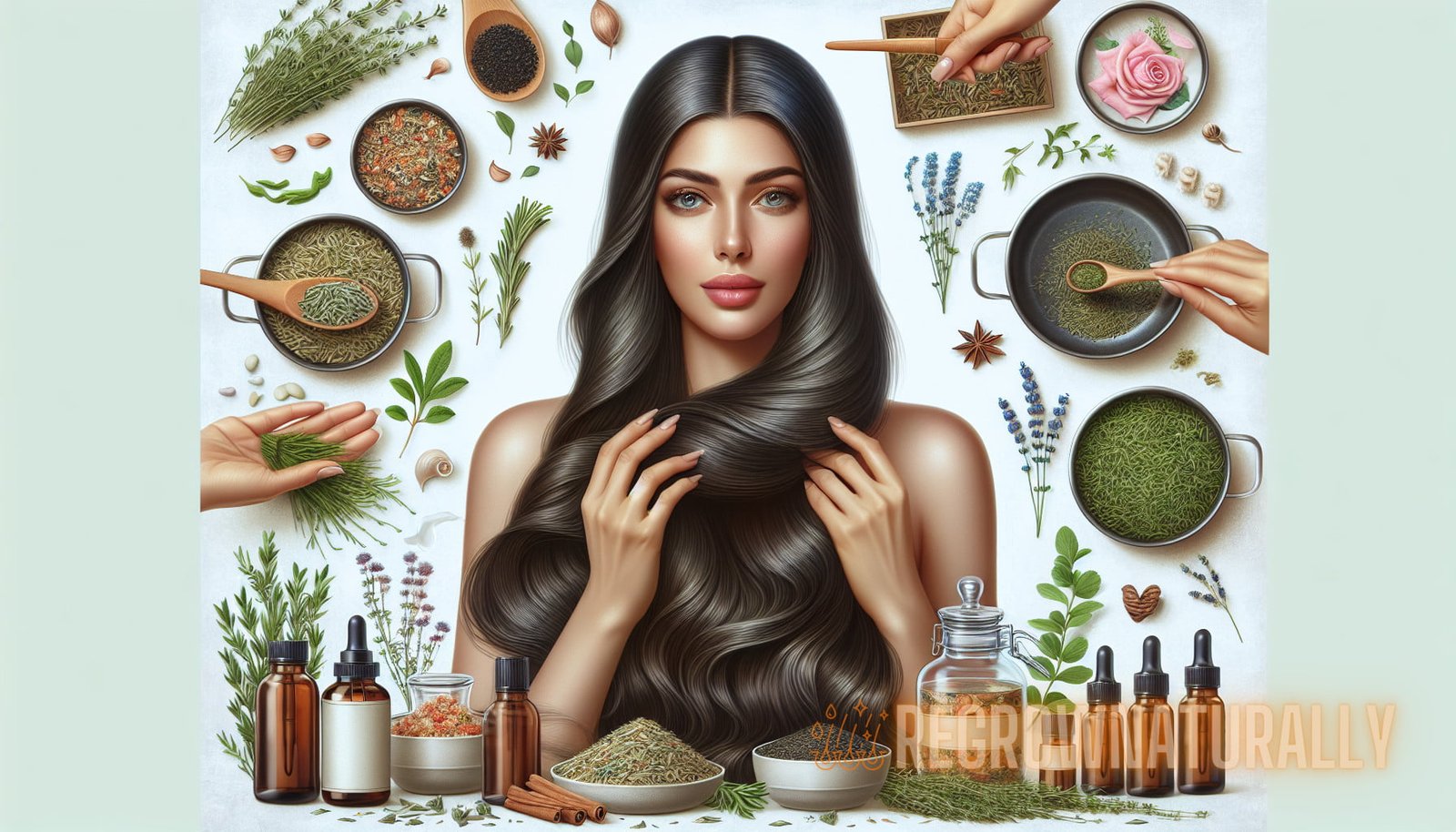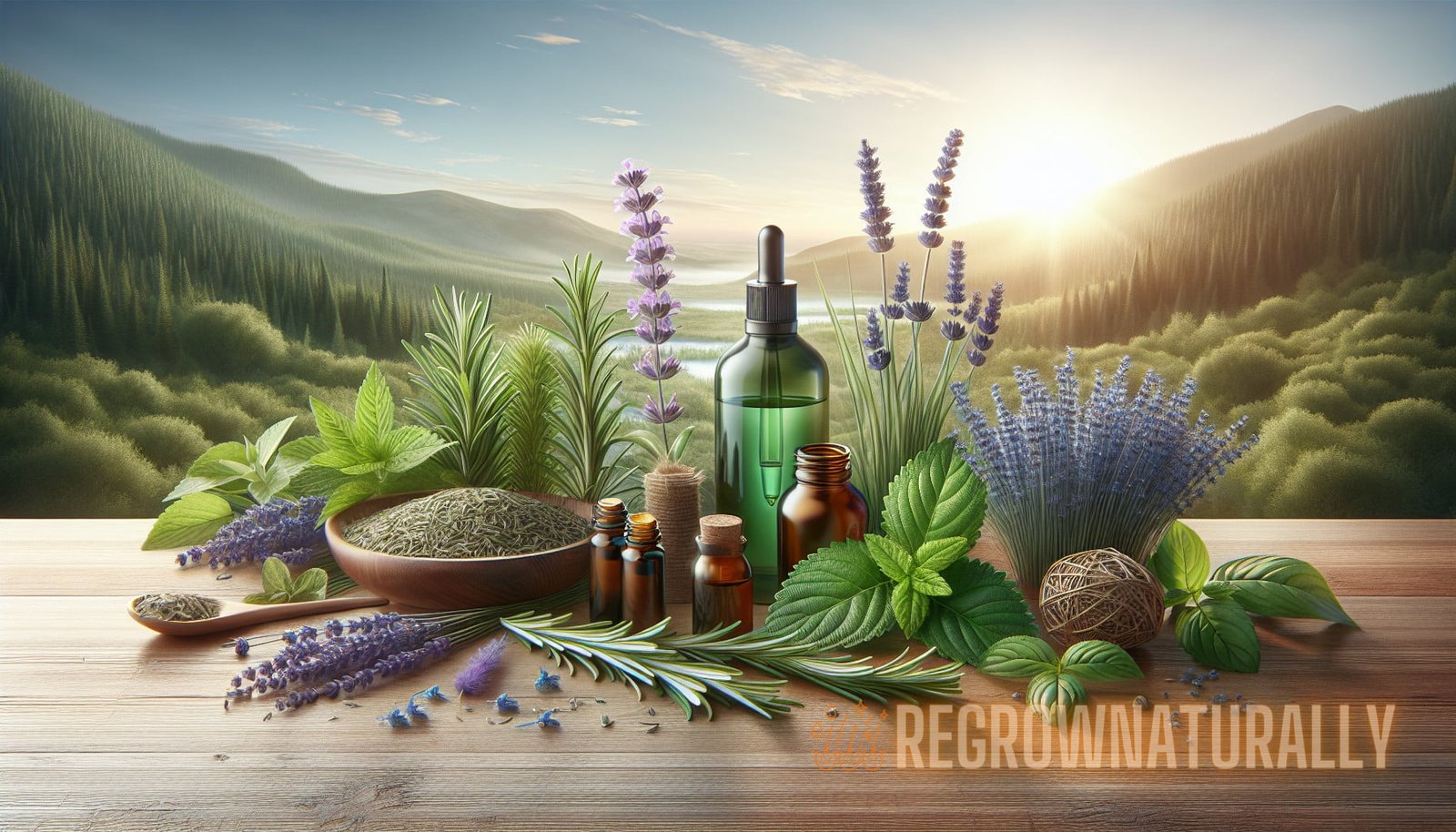Introduction
In today’s fast-paced world, many people are seeking natural solutions for their hair and scalp health concerns. Traditional hair care products often contain chemicals and synthetic ingredients that can cause damage and irritation to the scalp. Herbal remedies offer a natural alternative that can promote optimal hair restoration and scalp health.
In this guide, we will unravel the healing power of herbs and essential oils for herbal haircare. We will explore the benefits of using herbs and essential oils for hair growth and scalp health, as well as discuss specific herbs and essential oils that are known to be effective in promoting healthy hair and scalp.
If you are looking for natural solutions to improve your hair and scalp health, this guide is for you. Let’s dive in!
Benefits of Herbal Haircare
Herbal haircare has been used for centuries by various cultures around the world. The use of herbs and essential oils in hair care can offer numerous benefits, including:
- Stimulating hair growth
- Preventing hair loss
- Strengthening hair follicles
- Improving scalp health
- Reducing dandruff and itchiness
- Adding shine and luster to the hair
Unlike synthetic hair care products that may contain harsh chemicals, herbal remedies are gentle on the hair and scalp, making them suitable for individuals with sensitive scalps or those looking to avoid chemicals.
The Healing Power of Herbs for Hair Restoration
Various herbs have been found to be beneficial for promoting hair growth and restoring hair health. Let’s take a closer look at some of these herbs.
Rosemary
Rosemary is a fragrant herb that has been used for centuries for its medicinal properties. When it comes to hair care, rosemary is known for its ability to stimulate hair growth and prevent hair loss. It improves blood circulation to the scalp, which promotes hair growth. Rosemary also strengthens hair follicles, making them less prone to breakage.
Internal Link: Learn more about the benefits of aloe vera for hair regrowth and scalp healing.
External Link: Rosemary’s medicinal properties and its use in traditional medicine can be explored in more detail on Wikipedia.

Lavender
Lavender is another herb that is prized for its hair growth and scalp healing properties. It has a calming effect on the scalp and can help reduce stress and anxiety, which are known to contribute to hair loss. Lavender oil is also beneficial for improving blood circulation to the scalp, which promotes hair growth and strengthens hair follicles.
Internal Link: Discover an expert guide for optimal hair health through the power of herbs.
Nettle
Nettle is a herb that has been used for centuries for its nourishing and stimulating properties. It is rich in vitamins and minerals that are essential for hair health, such as vitamin A, vitamin C, and iron. Nettle promotes hair growth and prevents hair loss by strengthening the hair follicles.
Horsetail
Horsetail is an herb that contains silica, a mineral that is important for hair growth and strength. Silica helps improve the texture and appearance of the hair, making it stronger and more resilient. Horsetail also has anti-inflammatory properties that can help calm the scalp and reduce itchiness and irritation.
The Power of Essential Oils for Scalp Health
Essential oils are highly concentrated plant extracts that have been used for centuries for their medicinal properties. When it comes to scalp health, essential oils can be highly beneficial. Let’s explore some of the essential oils that are known for their scalp healing properties.
Tea Tree Oil
Tea tree oil is a powerful antibacterial and antifungal oil that is commonly used to treat scalp conditions such as dandruff and fungal infections. It helps moisturize the scalp, reduce itchiness, and promote a healthy scalp environment for hair growth.
Lemon Oil
Lemon oil is known for its astringent and cleansing properties. It helps balance the scalp’s pH level and remove excess oil and dirt, which can contribute to scalp issues. Lemon oil also has a refreshing scent that can invigorate the senses.
Peppermint Oil
Peppermint oil has a cooling and invigorating effect on the scalp. It helps improve blood circulation to the hair follicles, which promotes hair growth. Peppermint oil also has antimicrobial properties that can help prevent scalp infections and reduce dandruff.
Lavender Oil
In addition to its hair growth benefits, lavender oil is also beneficial for scalp health. Its calming properties can help reduce scalp inflammation and irritation, while its antibacterial properties can help prevent scalp infections.

How to Use Herbs and Essential Oils for Herbal Haircare
Now that we have discussed the benefits of herbs and essential oils for hair restoration and scalp health, let’s explore how to incorporate them into your herbal haircare routine.
Herbal Hair Rinse
Herbal hair rinses are a great way to nourish your hair and scalp with the goodness of herbs. To prepare a herbal hair rinse, follow these steps:
- Boil a handful of your chosen herbs, such as rosemary, nettle, or horsetail, in water.
- Let the mixture cool down and strain out the herbs.
- After shampooing your hair, pour the herbal rinse over your hair, making sure to distribute it evenly.
- Gently massage the rinse into your scalp for a few minutes.
- Leave the rinse on your hair for 5-10 minutes, then rinse it off with cool water.
Herbal hair rinses can be used after shampooing or as a final rinse after conditioning. They help nourish the scalp, promote hair growth, and add shine to the hair.
Essential Oil Scalp Massage
Another way to incorporate herbs and essential oils into your herbal haircare routine is through an essential oil scalp massage. To do a scalp massage, follow these steps:
- Choose your preferred essential oil, such as tea tree oil, peppermint oil, or lavender oil.
- Mix a few drops of the essential oil with a carrier oil, such as coconut oil or jojoba oil.
- Gently warm the oil mixture by rubbing it between your palms.
- Apply the oil mixture to your scalp and massage it in circular motions using your fingertips.
- Continue massaging for 5-10 minutes, focusing on areas where you have hair loss or scalp issues.
- Leave the oil on your scalp for at least 30 minutes, or overnight.
- Wash your hair as usual, using a gentle shampoo.
An essential oil scalp massage can help improve blood circulation to the scalp, promote hair growth, and nourish the scalp. It is a relaxing and therapeutic way to care for your hair and scalp.
Conclusion
Herbal haircare offers a natural and effective way to promote optimal hair restoration and scalp health. By harnessing the power of herbs and essential oils, you can stimulate hair growth, prevent hair loss, and improve the overall condition of your hair and scalp.
Whether you choose to use herbs and essential oils in the form of herbal hair rinses, essential oil scalp massages, or other methods, incorporating them into your hair care routine can bring about positive results. Embrace the healing power of herbs and essential oils, and unlock nature’s potential for healthy and beautiful hair.



